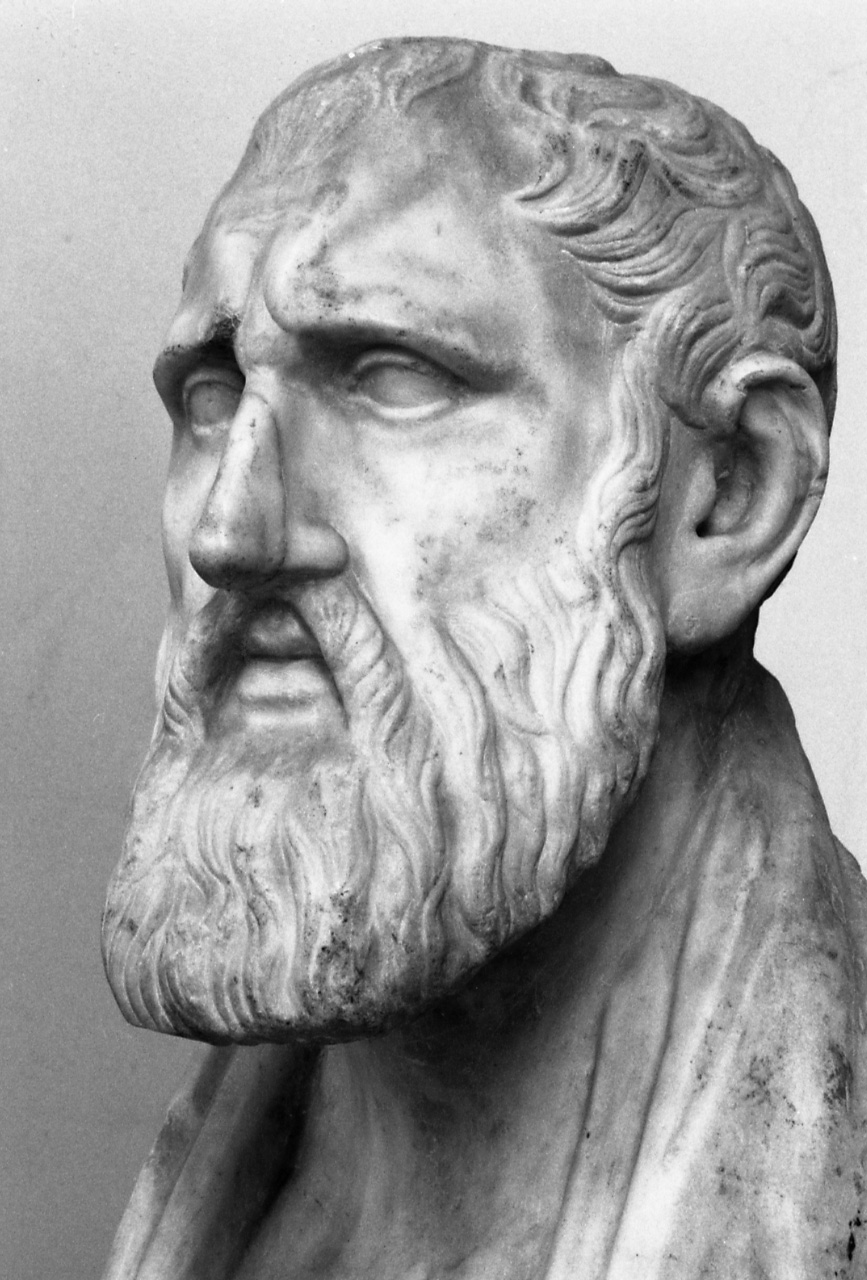Stoicism Facts For Kids
Stoicism is an ancient Greek philosophy that teaches the development of self-control and fortitude to overcome destructive emotions, focusing on virtue as the ultimate good.
Set reading age
View for Kids
Easy to read and understand
View for Students
Clear, detailed explanations
View for Scholars
Deep dives and big ideas
Introduction
Stoicism is a cool way of thinking that teaches us how to handle life’s ups and downs! 🌟It began in ancient Greece around 300 BCE, which is over 2,300 years ago! The word "stoic" comes from the "Stoa Poikile," a fancy porch where philosophers met to share ideas. Stoics believe it's important to control our reactions and focus on what we can change. This helps us stay happy and calm, even when things get tough. What if you lost your toy? A stoic would say, "I can’t change that, but I can choose how I feel about it!" 🌈
Gallery of Stoicism Facts For Kids
Key Philosophers
Some important Stoic philosophers are Zeno, Seneca, Epictetus, and Marcus Aurelius! 📚Zeno, the founder, lived from 334-262 BCE and taught that happiness comes from within. Seneca (4 BCE-65 CE) was a Roman who wrote letters sharing Stoic wisdom and emphasized the value of friendship. ✉️ Epictetus (55-135 CE) was a slave who became a great teacher, saying we should focus on what we can control. Lastly, Marcus Aurelius (121-180 CE) was an emperor who wrote "Meditations," reflecting on how to practice Stoicism in daily life. 🏛️ Each of these thinkers added their unique ideas to Stoicism!
History Of Stoicism
Stoicism started over 2,300 years ago in Athens, Greece. 🎭A wise man named Zeno of Citium founded it around 300 BCE. Zeno taught his students at the Stoa Poikile, the painted porch in Athens. As time passed, Stoicism spread to other places, including Rome. Famous Roman Stoics like Lucius Seneca and Marcus Aurelius helped popularize it further. 📜They wrote books sharing their thoughts. Stoicism was very influential during difficult times, like wars and challenging life events. Today, it is still taught and admired for helping people find inner peace and strength! 🕊️
Stoicism And Ethics
Stoicism has a strong focus on ethics, which is about knowing right from wrong. 🤔Stoics believe that living a virtuous life is more important than material things. They think kindness, honesty, and fairness are the best policies! 🏅Stoics aim to be good people, treating others with respect and compassion. They also believe that caring for the community is crucial. By practicing Stoic ethics, we can make the world a better place! 🌍After all, being good to one another leads to happiness and harmony!
Stoicism And Emotion
Stoicism teaches us how to understand and manage our emotions! 🌈Instead of ignoring feelings, Stoics say it's okay to feel sad, angry, or happy. The key is what we do with those feelings! Stoics encourage us to pause, think, and decide how to respond wisely. For example, if someone is mean, a Stoic won't just react with anger; they will think about why that person feels that way. 🌪️ This helps us avoid unnecessary conflicts and develop compassion for others. By learning to control our emotions, we can lead a happier and more peaceful life! 💖
Stoicism In Modern Life
Stoicism is still super helpful today! ✨Many people use its ideas to face stress and challenges in their lives. In today’s fast-paced world, we often feel overwhelmed by school, friendships, and technology. Stoicism reminds us to focus on what we can change and to accept what we cannot. 📱Some entrepreneurs and leaders even study Stoicism to remain calm and make better decisions! If you ever feel anxious, think like a Stoic: breathe deeply, focus on the present moment, and remember you can control your feelings! 🧘♂️
Core Principles Of Stoicism
The core principles of Stoicism are quite simple but powerful! 🌟First, it teaches us that we should differentiate between what we can control and what we can't. This helps reduce stress and worry. Secondly, Stoics believe in virtue—doing the right thing is essential for happiness! 🎈Thirdly, they encourage living in harmony with nature and accepting what life brings. Lastly, Stoics value wisdom, courage, and self-discipline. By practicing these principles, we can lead a more calm and fulfilling life! 🧘♀️
Stoic Practices And Techniques
Stoics use specific techniques to practice their philosophy! One popular practice is called "negative visualization." ❓ This means imagining what life would be like if we lost something or someone important. This helps us appreciate what we have more! Another technique is journaling. Writing down our thoughts helps us reflect and understand our emotions better. 📒Finally, Stoics often pause before reacting to tough situations—this helps them respond calmly instead of getting upset. By using these techniques, Stoics build resilience and inner strength! 💪
Influence Of Stoicism On Literature And Philosophy
Stoicism has influenced a lot of writers and thinkers throughout history! 📖For example, Shakespeare’s plays show characters struggling with emotions, much like Stoics would explore how to handle tough feelings. Modern self-help books and psychology also borrow Stoic ideas. 🧠Famous writers like Ryan Holiday and Massimo Pigliucci write about how Stoicism can guide us today. Stoicism's teachings continue to inspire people, helping them find wisdom and strength in everyday life. So, whether you're reading a classic book or a modern guide, you might just see Stoicism’s influence shining through! 🌟
Stoicism Facts For Kids Quiz


Make things. Learn new skills. Share safely.
DIY is a creative community where kids draw, build, explore ideas, and share.
No credit card required

